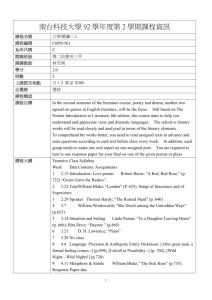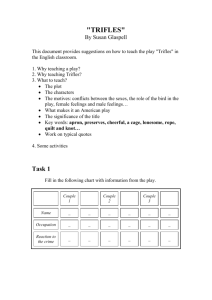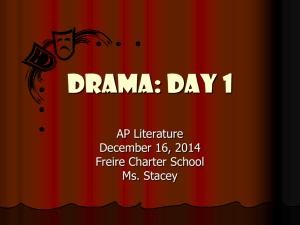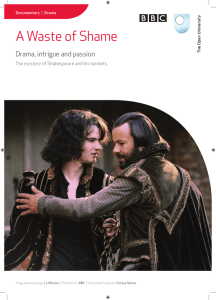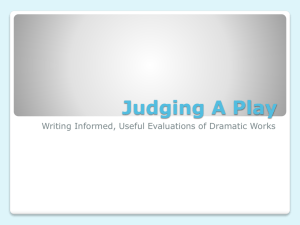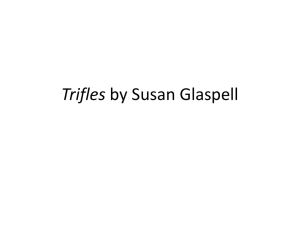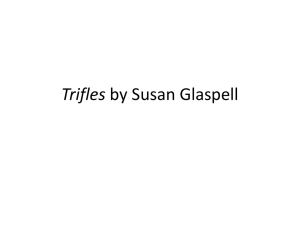English 175 Exam 3-Drama (Spring EOC) Study Guide What is the
advertisement
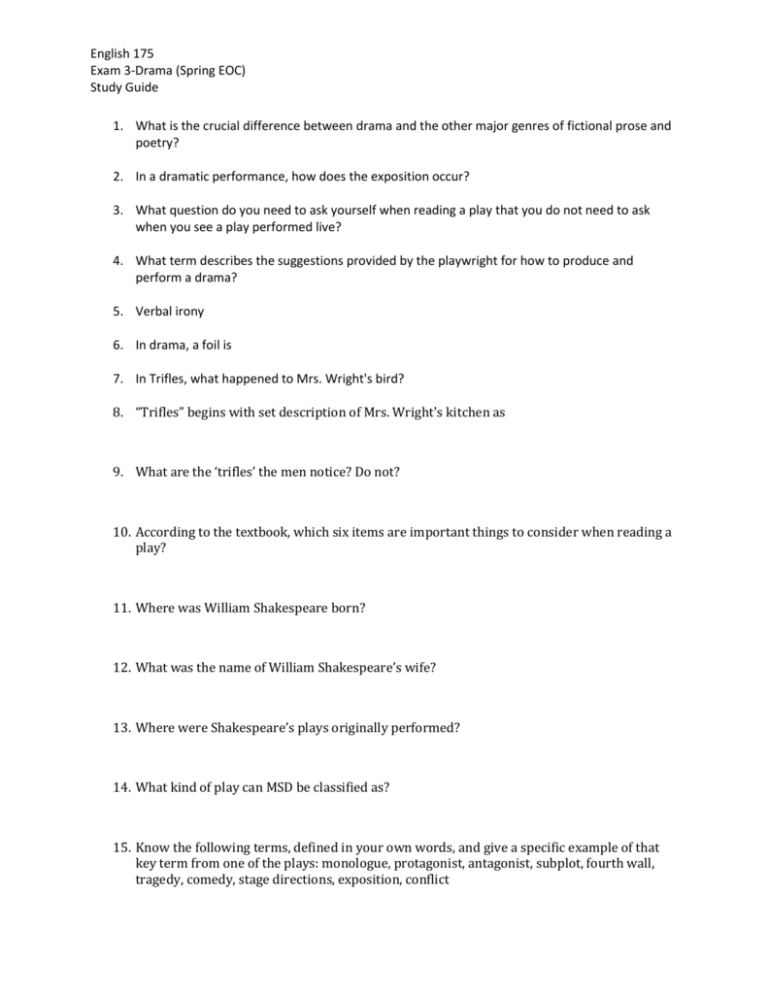
English 175 Exam 3-Drama (Spring EOC) Study Guide 1. What is the crucial difference between drama and the other major genres of fictional prose and poetry? 2. In a dramatic performance, how does the exposition occur? 3. What question do you need to ask yourself when reading a play that you do not need to ask when you see a play performed live? 4. What term describes the suggestions provided by the playwright for how to produce and perform a drama? 5. Verbal irony 6. In drama, a foil is 7. In Trifles, what happened to Mrs. Wright's bird? 8. “Trifles” begins with set description of Mrs. Wright's kitchen as 9. What are the ‘trifles’ the men notice? Do not? 10. According to the textbook, which six items are important things to consider when reading a play? 11. Where was William Shakespeare born? 12. What was the name of William Shakespeare’s wife? 13. Where were Shakespeare’s plays originally performed? 14. What kind of play can MSD be classified as? 15. Know the following terms, defined in your own words, and give a specific example of that key term from one of the plays: monologue, protagonist, antagonist, subplot, fourth wall, tragedy, comedy, stage directions, exposition, conflict English 175 Exam 3-Drama (Spring EOC) Study Guide 16. Be familiar with the following works for the short essay portion: a. In a MSD: why the rustics (Bottom, Snout, etc.) are in the play (for any other reason than comic relief?) How Pyramus and Thisby relate to the main action. b. On Trifles: how you would stage Mrs. Hale’s discovery of the bird in the basket; what a twenty-first century version would be like c. What standard drama conventions (plot, characters, setting) must be familiar to the audience of The Real inspector Hound and what the audience must know about the world of critics and reviews. d. Marge Pierc y’s poem “Barbie Doll.” e. Shakespeare’s “My Mistress’ eyes are nothing like the sun.”
